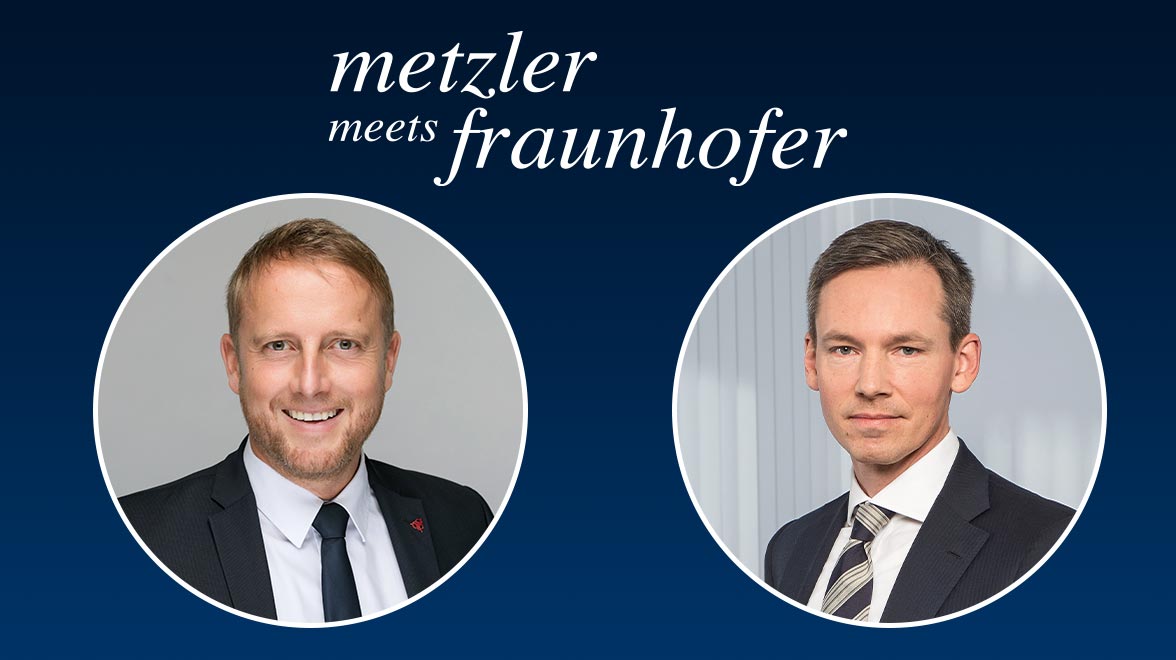Ausblick vom Zinsgipfel
The article is not available in the chosen language und will therefore be displayed in the default language.
Nach dem Aufstieg zum Gipfel folgt die Zeit des Innehaltens und des wohlverdienten Ausblicks von oben. Wie Bergsteiger dürften sich auch die Mitglieder des EZB-Rates rund um Präsidentin Lagarde fühlen. Mit der zehnten Zinsanhebung in Folge Mitte September sollte der Gipfel erreicht sein und es ist Zeit für eine Standortbetrachtung.
Nach spätem Start im Juli 2022 hat die EZB insgesamt entschlossen auf ihr Mandat der Preisstabilität geliefert. Christine Lagarde hat in der Vergangenheit mehrfach klargemacht, dass das Wohlergehen der Wirtschaft bei EZB-Entscheidungen allenfalls mittelbar eine Rolle spielen darf. Klarer Auftrag der Zentralbanken ist der Kampf gegen die hartnäckige Inflation und sicherzustellen, dass die Inflationsrate auf ein Niveau von 2 % zurückgeführt wird. Und die Zinseffekte beginnen in der Realwirtschaft Wirkung zu zeigen.
Stillstand im Bausektor
Die sprunghaft gestiegenen Finanzierungskosten wirken im Bausektor wie eine Vollbremsung. Zu Ende gebaut werden aktuell die Projekte, die andernfalls als Bauruine einen noch größeren wirtschaftlichen Schaden verursachen würden. Neue Projekte sind so gut wie zum Erliegen gekommen. Der Abverkauf von Wohnungen aus dem gehobenen oder Luxussegment ist selbst in Ballungszentren wie Frankfurt in der Regel nur mit deutlichen Preiszugeständnissen möglich. Wie bei anderen hochpreisigen Wirtschaftsgütern auch, wirken die aktuellen Rahmenbedingungen bei Immobilien sowohl von der Angebots- als auch von der Nachfrageseite her dämpfend. Projektfinanzierungen haben sich drastisch verteuert und lasten gemeinsam mit höheren Baustoffpreisen und Lohnniveaus auf der Angebotsseite. Auf der anderen Seite stehen private Haushalte mit sinkenden Realeinkommen, massive Teuerung und Hypothekenzinsen, die sich im 10-Jahres-Bereich fast vervierfacht haben. Diese Gleichung geht auf absehbare Zeit nicht auf.
Obwohl es positiv ist, Übertreibungen im Immobilienmarkt wieder auf erschwinglichere Niveaus herabzukühlen, hat auch diese Medaille zwei Seiten. Die Nachfrage nach Wohnraum in Deutschland steigt stetig weiter an, während sich die Angebotsknappheit noch verstärkt. Im Zeitraum Januar bis Juli 2023 sanken die Baugenehmigungen für Wohnungen gegenüber dem Vorjahr um rund 32 %. In der Folge sind die Mieten in Großstädten laut der Immobilienberatung Jones Lang LaSalle allein im ersten Halbjahr 2023 im Schnitt um weitere 6,7 % gestiegen. Ein nicht unerheblicher Inflationstreiber, da Wohnung und Nebenkosten rund ein Viertel des für die Inflationsberechnung herangezogenen Warenkorbs ausmachen. Dieses Beispiel zeigt zudem, dass Leitzinserhöhungen zwar die schärfste Waffe der Notenbanken gegen Inflation darstellen, aber leider auch nicht linear funktionieren und schon gar nicht nebenwirkungsfrei sind.
In Summe zeichnet sich das Bild eines harten Erwachens der Konsumenten aus dem Post-Lockdown-Rausch.
Auch in anderen Branchen zeigen sich deutliche Bremsspuren. Im August wurden in Deutschland rund 273.000 Pkw neu zugelassen – rund 37 % mehr als im Vorjahresmonat. Getrieben wurde der Zuwachs allerdings primär vom Auslaufen der Förderung für gewerblich genutzte E-Autos zum 1. September. Zudem spiegeln die Zulassungen noch immer das Abarbeiten des pandemiebedingt angeschwollenen Auftragsbestandes wider. Die aktuelle Bestelltätigkeit hingegen schwächt sich weiter ab und zeigt, dass gestiegene Finanzierungskosten und niedrigere verfügbare Einkommen nicht mit den in den vergangenen Jahren mehrfach erhöhten Kfz-Preisen in Einklang zu bringen sind.
In Summe zeichnet sich das Bild eines harten Erwachens der Konsumenten aus dem Post-Lockdown-Rausch. Die Nachholeffekte werden deutlich abebben und die klassischen Profiteure diskretionärer Ausgaben, wie beispielsweise die Tourismusindustrie, sollten sich auf magerere Quartale einstellen.
Letztlich bringt das aber genau den gewünschten Effekt in der Inflationsbekämpfung. Nur eine ausgeprägte Reaktion der Nachfrager wird manche Anbieter von Waren und Dienstleistungen zur Räson in Bezug auf ihre Preissetzung bringen, und die vielerorts durch Knappheit oder eine „Jetzt erst recht“-Mentalität der Konsumenten ausgehebelte Preiselastizität der Nachfrage wieder einrenken. Wenn auch kurzfristig die Sorge vor enttäuschenden Unternehmensgewinnen auf dem Aktienmarkt lastet – langfristig ist das der einzig richtige Weg zur Inflationsbekämpfung und damit auch der Schlüssel zur Erholung der Märkte.
More articles
This document constitutes promotional material published by B. Metzler seel. Sohn & Co. AG (Metzler).
It is based on information which is generally available and which Metzler believes to be fundamentally reliable. Metzler has not verified the accuracy or completeness of the information and provides no warranty or representation in respect of the accuracy or completeness of the information, opinions, estimates, recommendations and forecasts contained in this document. Neither Metzler nor any of its shareholders or employees may be held liable for damages or any other disadvantage suffered due to inaccurate or incomplete information, opinions, estimates, recommendations or forecasts resulting from the distribution or use of this document or in connection with this document in any way.
This document is provided for advertising purposes only and does not constitute or form part of any offer or solicitation of any offer to buy securities, other financial instruments or other investment instruments. This document does not meet the legal requirements for ensuring impartiality of investment recommendations pursuant to Section 85 of the German Securities Trading Act (WpHG) in conjunction with Section 20 (1) of Regulation (EU) No. 596/2014 of the European Parliament and of the Council of April 16, 2014 regarding market abuse (Market Abuse Directive) to which Articles 4 and 6 of the Delegated Regulation (EU) 2016/958 of the Commission of March 9, 2016 apply in addition to the Market Abuse Directive. Metzler does not act as investment advisor or portfolio manager in preparing this document. This document does not constitute personal investment advice.
The information, opinions, estimates, recommendations and forecasts contained in this document reflect the personal views of the author at the time of publication on the financial instruments or issuers that form the subject of this document and do not necessarily reflect the opinions of Metzler, the issuer or third parties. They may also be subject to change on account of future events and developments. Metzler has no obligation to amend, supplement or update this document or to otherwise notify recipients in the event that any information, opinions, estimates, recommendations or forecasts stated herein should change or subsequently become inaccurate, incomplete or misleading. The model calculations contained in this document, if any, are examples showing the possible performance and are based on various assumptions (e.g. regarding earnings and volatility). The actual performance cannot be guaranteed, warranted or assured.
This document may not be copied, duplicated, forwarded to third parties or otherwise published, in whole or in part, without Metzler’s prior written consent. Metzler reserves all copyrights and rights of use, including those relating to electronic media. Insofar as Metzler provides hyperlinks to websites of the companies cited in research publications, this does not mean that Metzler confirms, recommends or warrants any data contained on the linked sites or data which can be accessed from such sites. Metzler accepts no liability for links or data, nor for any consequences which may arise as a result of following the links and/or using the data.
This document is subject to the laws of the Federal Republic of Germany. Venue of jurisdiction for any disputes shall be Frankfurt am Main, Germany.
 Deutsch
Deutsch English
English



